Showing 1-10 of 35 results
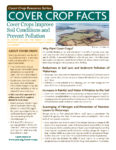
Ecosystem Services from Cover Crops
The Ecosystem Services from Cover Crops resources found on this page include a series of fact sheets, three infographics and one PowerPoint slide set. Together, these resources address the role of cover crops in nutrient management, erosion, infiltration, soil organic matter, supporting wildlife and beneficial insects, and carbon sequestration. They are available for use by educators, […]
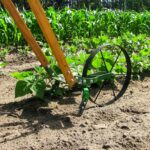
Choosing the Right Tools For Your Farm
A manual created by Ain Chike and Georgia Organics outlines hand tools, small engines, their utility descriptions and where to source them for growers in the Southeast. It allows readers to understand each tool and their practical uses. This short 4-page PDF acts as a overview for important tools to ensure efficient and productive yields […]

Grazing Networks for Livestock Producers
Grazing networks promote a mutual self-help approach to learning that is based on shared local experience and that provides several benefits to participants. This publication offers suggestions for finding or starting a grazing network and provides examples of the kinds of activities grazing networks might conduct. It also contains recommendations for sustaining a grazing network […]
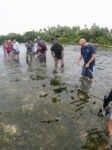
Understanding and Measuring Social Sustainability
This SARE brief defines social sustainability and illustrates how it can be addressed more clearly in SARE projects. Sample projects and quality of life indicators are provided to help grant-seekers and reviewers think broadly about understanding, measuring and describing the social impacts of research and education projects.
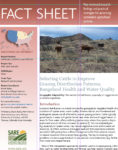
Selecting Cattle to Improve Grazing Distribution Patterns, Rangeland Health and Water Quality
This project is the first and only study that we are aware of that has evaluated whether grazing distribution has the potential to be improved through intensive breed selection. Most of the management approaches currently used to increase grazing uniformity, such as water developments and fencing, can resolve livestock grazing distribution problems on both private and public lands. However, these practices usually require large capital expenditures.

SARE Library USB Drives - Bundle of 10
All of SARE’s current publications right at your fingertips on a USB drive.
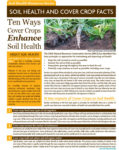
10 Ways Cover Crops Enhance Soil Health
Soil health is a hot topic these days, one that is justifiably receiving considerable attention from farmers and their farm advisors. This short fact sheet highlights some of the key ways that cover crops improve soil health by influencing the biological and physical characteristics of the soil.
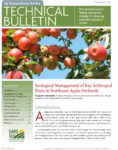
Ecological Management of Key Arthropod Pests in Northeast Apple Orchards
Apples are an important crop in the Northeast, grown for both fresh market and processing. Growers have a challenging task managing insects, mites and diseases. By some estimates, growers may spend up to 25 percent of their production costs on pest management. This technical bulletin outlines strategies developed from SARE-funded projects in Massachusetts and Pennsylvania, including biologically based pest control, orchard architecture and development of materials approved for organic production.

The Sustainability of Biofuel Fact Sheet Series
This 18-part series addresses topics related to the sustainability of biofuel production, including biodiversity, greenhouse gas reductions, life cycle analysis and more.
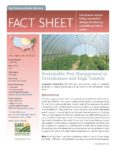
Sustainable Pest Management in Greenhouses and High Tunnels
From 2007 to 2009, Cornell researchers in New York used a SARE grant to study the efficacy of biological insect control in minimally heated greenhouses and high tunnels or hoop houses. This fact sheet reports the results and provides detailed advice on how growers can use natural enemies to manage insect pests in minimally heated greenhouses and unheated high tunnels.